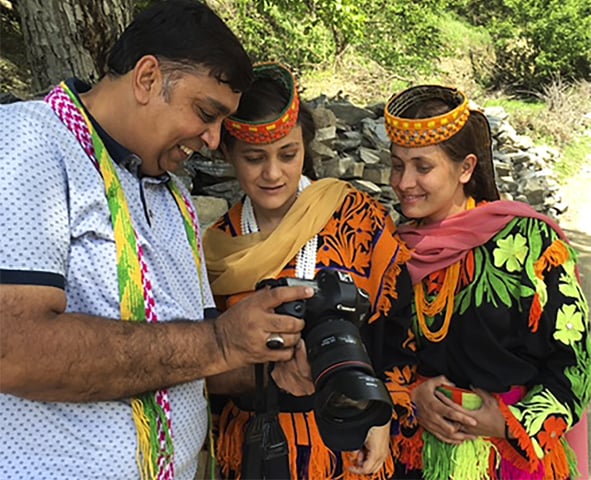
Are you working on that blog post and do not have the right picture to go with it? Is your YouTube video edited and you just want a perfect thumbnail to try your luck at making it big? There is a new startup in town that has the solution.
PakStockPhoto is an Islamabad-based startup that is building a library of Pakistan-centric stock images. Like pretty much everything else in the local ecosystem, they are trying to introduce an Uberised model where photographers submit their pictures and buyers purchase them, all through a digital platform.
Works simple as well: go to the website, look for the right image, select the size (small at 72DPI and large 300DPI), and add it to cart in order to place an order. An invoice email is sent afterwards and you can pay via an online transfer on the receipt of which you get a download link that is active for one week. Currently, the startup does not have a payment channel integrated but the founder claims, they are in the later stages of talks with two providers and it should be up in a week or two.
Meanwhile, photographers can sign up on the website with their names and email addresses and upload their work along with captions and tags. The submitted pictures have are then approved by the Pak Stock team and once that is done, they are published and can be purchased by anyone.
Muhammad Abid, Saqib Riaz and Asad Zaidi co-founded Pak Stock Photos and look at product and technology, communications and strategy, and quality assurance, respectively.
The startup began with just a minimum viable product earlier this year and incubated at the National Incubation Centre, Islamabad where the business side ironed out. “I always used to notice how our local websites put up pictures of white models and how that makes the content much less relatable. Small agencies, in particular, often do not have the resources to hire photographers. Based on our research, a picture library with Pakistan-centric content was an untapped opportunity that we didn’t want to miss,” Abid recalls.
So far, the venture has been bootstrapped with the co-founders putting in their money with no plans to change that anytime soon. “We would like to keep our growth organic,” says Abid.
As for their income stream, the startup charges Rs850 per small sized photo and Rs5,500 for the larger ones. However, given that it is the photographer who puts up his work, what does he get in return? “Every time a picture is bought from us, 50 per cent of that revenue goes to the photographer,” says the founder.
The quality assurance can take around a week and shows the status on the photographers’ dashboard. Nevertheless, the process is manual, which raises questions over its scalability. “It’s similar for all major foreign companies and some even take as long as a month but of course they have more human resources which we can’t afford for now,” according to Abid.
Now let us get to the point you must be wondering: in a market where copyright issues do not mean a thing and piracy remains a norm, is there even any demand for a platform that adds to cost?
“Locally, we are looking at advertising agencies, develop sector and media organisations where there is always demand for Pakistani images and generally the big ones go by the rules. Then there is the international market such as foreign journalists who can’t physically come and get pictures so we can be there intermediary,” says Abid.
Those who do bother about copyright laws and all those strange words over here often rely on in-house photographers (photojournalists in the case of news organisations) or agencies like Reuters. Whereas, among dedicated platforms, Shutterstock is the biggest of them all with a database of well over 200 million stock images and has packages with per picture cost going even less than a dollar.
How would our local startup then compete against such a giant? “First of all, they operate on a subscription-based model and can reduce margins thanks to their volumes. Plus, their content is not relevant to Pakistan,” answers Abid.
In addition, there is no doubt about that: despite their huge library, less than 100,000 are tagged for Pakistan. In comparison, our local startup has already gotten to 5,000 in around six months.
While still new to Pakistan, the model is not unique elsewhere. Country or region-specific players have emerged across the globe aiming to make their content more relevant locally, with Image Bazaar in India, Can Stock Photo in Canada and Scan Stock Photo for the Scandinavian countries.
Does this mean we can expect to see some relatable brown faces on the internet advertisements a few years from now? I don’t mind that image.
The writer is member of staff:
Twitter: @MutaherKhan
Published in Dawn, September 15th, 2019













































